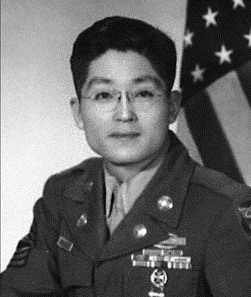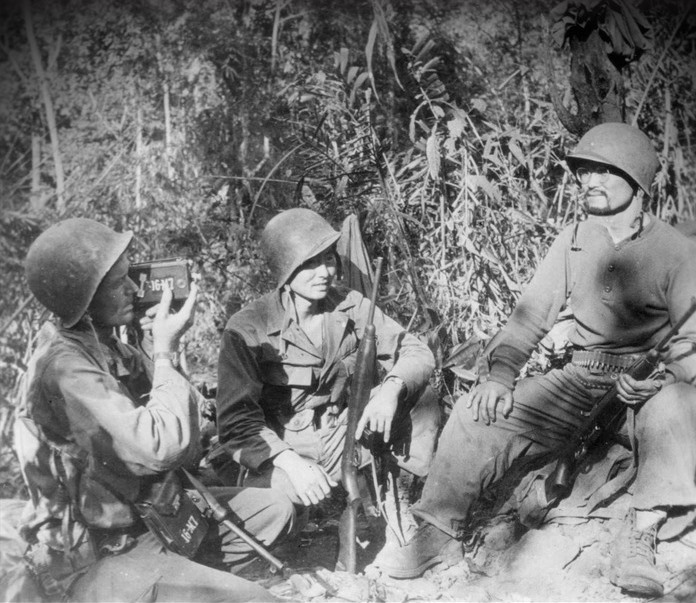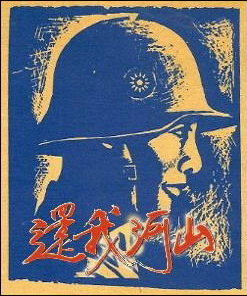An Unlikely Encounter
- By Peter Harmsen
- 24 March, 2014
- No Comments
 Shanghai, 1945: Roy Matsumoto, a 32-year-old linguist in the US Army, is on a mission to interrogate Japanese prisoners of the war that has just ended. Defying the laws of probability, he spots his own cousin among the captives. The cousin has news. In an even unlikelier turn of events, Matsumoto’s own brother is also a POW held by the Americans and Chinese in Shanghai. A few hours later, the two brothers – one a victorious GI, the other a member of Hirohito’s defeated army – meet each other for the first time in years.
Shanghai, 1945: Roy Matsumoto, a 32-year-old linguist in the US Army, is on a mission to interrogate Japanese prisoners of the war that has just ended. Defying the laws of probability, he spots his own cousin among the captives. The cousin has news. In an even unlikelier turn of events, Matsumoto’s own brother is also a POW held by the Americans and Chinese in Shanghai. A few hours later, the two brothers – one a victorious GI, the other a member of Hirohito’s defeated army – meet each other for the first time in years.
To understand the background of this encounter, which would be dismissed as too far-fetched if it appeared in fiction, we must turn the clock back several decades: Roy Matsumoto was born in 1913 in Laguna, California, the son of Matsumoto Wakaji, a native of the Hiroshima region who had emigrated to the United States seven years earlier. Roy grew up an American, but he was sent back to Japan as an eight-year-old to learn the language. That turned him into a Kibei, a Japanese American born in the United States and educated in Japan.
While the rest of his family followed suit and returned to Japan in 1927 – part of the reverse migration that is too rarely touched upon in the history books – Roy eventually ended up in the United States. As a result, when war between the United States and Japan broke out in December 1941, the family found itself dangerously split by the gulf between the two belligerent nations. Roy and one brother were in the United States, while three brothers and the parents remained in Japan.
The remarkable story of the family is told in the documentary Honor and Sacrifice (see trailer below). It explains how the five brothers ended up serving on both sides of the global conflict. While Roy was recruited by US military intelligence due to his language skills, his brothers in Japan were posted in remote corners of the Japanese empire, from Guadalcanal to China.
After completing military training, Roy joined a legendary unit, Merrill’s Marauders, which operated behind Japanese lines in the dense and dangerous jungles of Burma. “Merrill’s Marauders faced some of the worst conditions of any combat unit in the Pacific in World War II, probably in Europe as well,” US Army historian James C. McNaughton says in the documentary.
The language skills that Roy and other Japanese Americans brought to the unit were key to its survival – just how key was demonstrated in an event for which Roy would later be awarded the Legion of Merit. At a time when his battalion was trapped at a place nicknamed Maggot Hill, he would crawl up to the Japanese lines every night to listen in on their conversations. It was while eavesdropping like this one night that he received the following piece of information: The Japanese enemy would launch an attack the following morning.
As a result, the battalion was ready when the Japanese charged. The first wave of attackers was cut down by American fire, and the second wave seemed reluctant to follow suit. Thinking quickly, Roy shouted, in perfect Japanese: ” Attack, attack!” The second wave of Japanese believed they had heard an order from one of their own officers, and got up and charged ahead, to meet the same fate as the first wave.

Roy Matsumoto, right, with Merrill’s Marauders
Leaving the ferocity of the jungle behind, Roy was later sent to China where he worked as a POW interrogator. It was in this capacity that he reached Shanghai in 1945.
The cousin who told him about his brother held captive in Shanghai also had other good news for him: Although Matsumoto’s family had lived just two blocks from the epicenter of the atomic bomb that hit Hiroshima in August 1945, they had all survived. Some months beforehand, they had moved out of the city. The entire family, trapped on both sides of the Pacific by war, had survived – miraculously.
UPDATE: Roy Matsumoto, an American hero, passed away on April 21, 2014, two weeks short of his 101st birthday.



 Copyright © 2024
Copyright © 2024
Leave a Reply